Christopher Karounos
Library Blogs
Showing 11 - 20 of 27 items
Results
for Date: April 2018
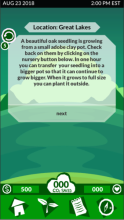
Working at the Design Lab has allowed me to do “something new” on at least 3 different levels: (1) Learning how to do new skills; (2)Working as a “librarian” assistant; and (3) Cutting edge technology and topics. I never would have guessed I would be working in a library. Working as a resident of the library has opened my eyes to how much I share in common with librarians who like myself want to encourage the dissemination of information as well as culture, science, and truthful exploration of information.
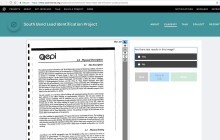
Working at the Shapiro Design Lab was a valuable and unforgettable experience. I was able to explore different types of interesting projects related to both data science and our library community. It gave me an opportunity to apply the knowledge and skills you learned in the classroom to a real-world situation and to collaborate with other student developers. Mainly I participated in the AwesomeBox, an interface that shows recommended books by peers, Measure The Future, a sensor that collects information about how people use library spaces, which is adapted from the open platform of http://measurethefuture.net, and the Zooniverse, data aggregation that measuring an annotation reliability for projects with volunteers to participate in crowd-sourced scientific researches.
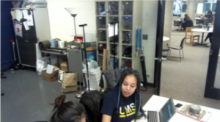
Discovering library technology as a student developer working on the AwesomeBox and Measure The Future projects
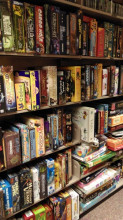
Are you a fan of games, but not the electronic kind? Much of our collection of over 7,000 games does consist of computer and video games, but we also have over 200 board games that can be played within the CVGA space. We also have over 100 tabletop role-playing books available, featuring many different game systems. These books can be borrowed for up to 3 days at a time.
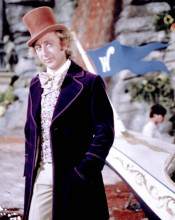
The Special Collections Research Center is pleased to announce a new exhibit, Quaker Oats Makes a Movie: A Scrumdiddlyumptious Wonka Adventure. This exhibit, curated by students in Matthew Solomon's SAC 335 class, explores the production of the film Willy Wonka & The Chocolate Factory, and Quaker Oats's unexpected involvement in the film industry.
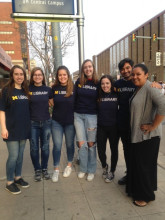
The Library Student Engagement Ambassadors were back this semester with new events and some tried and true favorites. Always striving to show that the Library is more than just a place to study and check out books, this group of seven undergraduate students worked hard during the Winter semester to bring the U-M community fun and exciting events from the UGLi and beyond. Check out what we were up to this semester and be on the lookout for more Engagement Ambassador events in the Fall term.
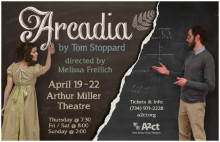
This weekend, Ann Arbor Civic Theatre presents Arcadia by Tom Stoppard, directed by Melissa Freilich, April 19-22, 2018, at the University of Michigan’s Arthur Miller Theatre, 1226 Murfin Ave, 48109. Performances are Thursday at 7:30 p.m., Friday-Saturday at 8 p.m. and Sunday at 2 p.m. Come early to the performance (or catch us during intermission) on Saturday, April 21 for a Rare Book Meet & Greet with the Special Collections Research Center, displaying early 19th century books on landscape architecture, mathematics, dancing, and poetry.
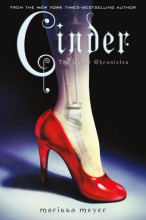
Retelling of several classic fairly tales with a SciFi twist.
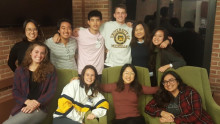
Project Alivio is a multidisciplinary global health project team that is a part of Michigan Health Engineered for All Lives (M-HEAL). Our goal is to reduce the incidence rate of pressure ulcers in San Juan de Dios hospital. What makes us unique as a project team is that our 19 students work as a co-design team with the Students Association of International Medical Research (SAIMER), a medical student organization from the Universidad de San Carlos in Guatemala City. As we design our solution, we are constantly receiving input from peers our age with more medical experience at our target location.
Pressure ulcers, or bedsores, form when a patient is exposed to pressure for a prolonged period of time. This pressure restricts proper blood flow to a certain area on the body, usually the coccyx, heels, back of head, or elbows, causing skin and tissue damage. To prevent pressure ulcers, nurses turn patients to offload the pressure exerted on the body. Pressure ulcers have high incidence rates in Guatemala City for many reasons, but the factor we are targeting is the understaffing of nurses.
Our team meets for several hours a week to design, build, discuss progress, and plan next steps. With the input of professors, physicians, and nurses from both universities, we hope to design a sustainable solution for our end-users. We also value offering our members a meaningful and educational project experience.
This spring, from April 29th to May 10th, seven of our members will be traveling to Antigua, Guatemala. In past, we have made two trips to Guatemala to conduct a needs assessment, which is how we narrowed the need to pressure ulcer prevention. This will be the first trip that is focused on the design itself. We will bring some sketches and prototypes of different concepts to show to our stakeholders to receive feedback. Besides the project itself, the trip will be a great opportunity for some of our newer members to learn more about the global health scene and feel connected to this project.
Pressure ulcers, or bedsores, form when a patient is exposed to pressure for a prolonged period of time. This pressure restricts proper blood flow to a certain area on the body, usually the coccyx, heels, back of head, or elbows, causing skin and tissue damage. To prevent pressure ulcers, nurses turn patients to offload the pressure exerted on the body. Pressure ulcers have high incidence rates in Guatemala City for many reasons, but the factor we are targeting is the understaffing of nurses.
Our team meets for several hours a week to design, build, discuss progress, and plan next steps. With the input of professors, physicians, and nurses from both universities, we hope to design a sustainable solution for our end-users. We also value offering our members a meaningful and educational project experience.
This spring, from April 29th to May 10th, seven of our members will be traveling to Antigua, Guatemala. In past, we have made two trips to Guatemala to conduct a needs assessment, which is how we narrowed the need to pressure ulcer prevention. This will be the first trip that is focused on the design itself. We will bring some sketches and prototypes of different concepts to show to our stakeholders to receive feedback. Besides the project itself, the trip will be a great opportunity for some of our newer members to learn more about the global health scene and feel connected to this project.
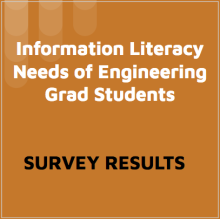
In this study, engineering librarians Leena Lalwani, Jamie Niehof, and Paul Grochowski sought to learn from graduate students in the College of Engineering (CoE) how these students could benefit from more instruction on U-M Library resources.